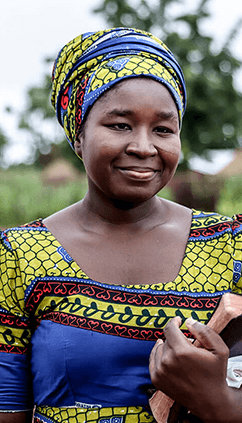By Anton de Vreugd
Each time I watch the small video I made upon arrival at Pastor Shadrack’s church in Mwamapalala, the sheer joy energizes me again. A small group of congregants sang a happy Swahili song, and although its lyrics were simple, its message was revealing.
Wherever I go, I find Him
When I go to Shinyanga, I find Him
When I go to Uganda, I find Him
When I go to Shinyanga, I find Him
When I go abroad, I find Him
When I go to Kigoma, I find Him
When I go abroad, I find Him
I find Him, I find Him.”
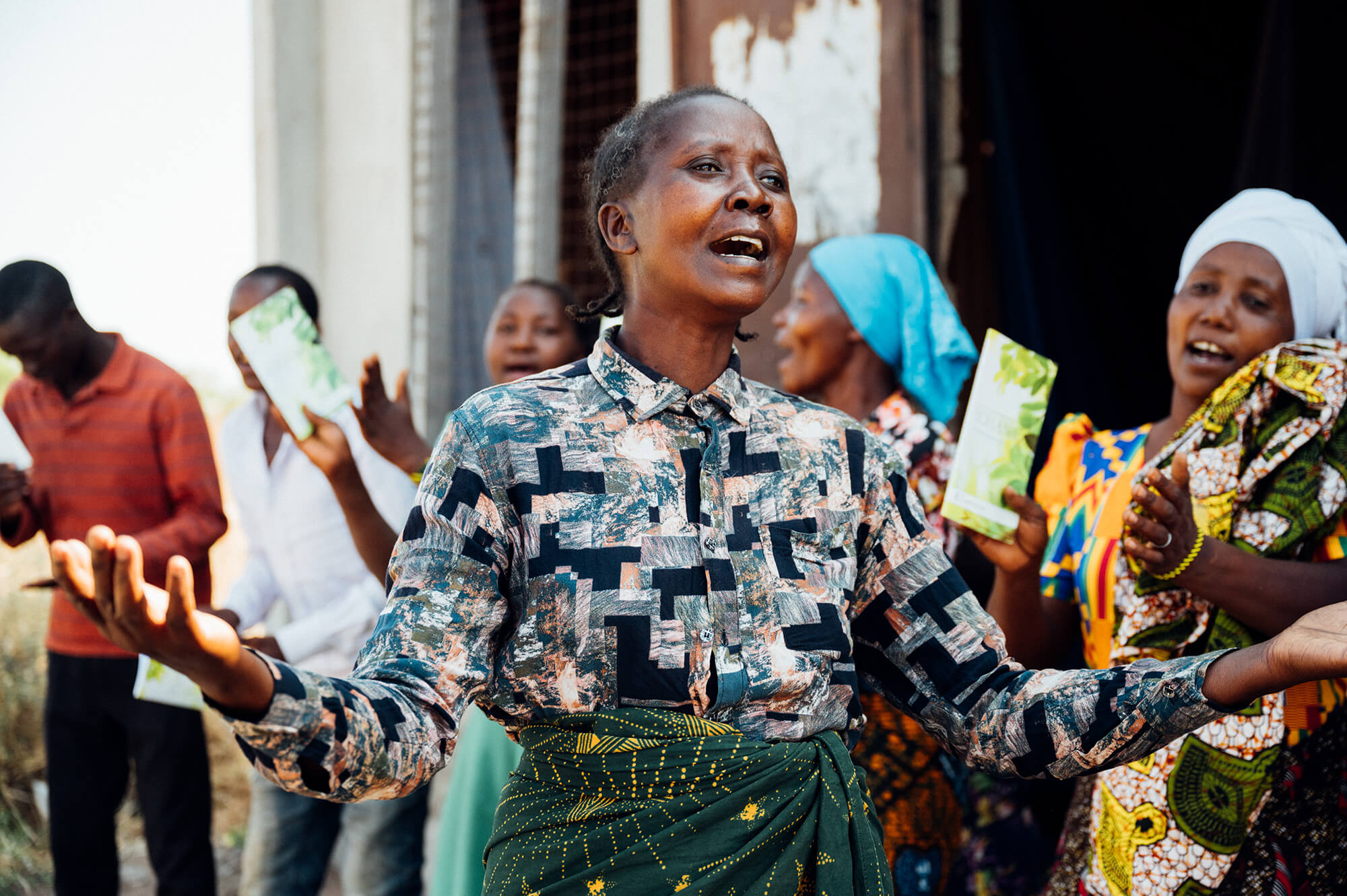
“After being trained as an evangelist through Project Philip, I felt I had to come to Mwamapalala,” Pastor Shadrack told me. “I chose this area for my ministry because I felt in my heart these people needed the Gospel. We started the Bible studies in December last year. Since then, the group has grown into a church.”
“When I go to Shinyanga, I find Him…”
Mwamapalala is a tiny village in Tanzania’s western Shinyanga Region. I traveled there recently with my host, Pastor Nicodemus Kitto (pictured below), who serves as Bible League’s local ministry leader. Pastor Nicodemus is based in Shinyanga Town, the capital of the region with the same name, but most of the ministry happens in the rural areas. “Compared to the urban areas, the rural people are very poor; they can’t even afford to buy a Bible,” he explained. “Also, there are many idol worshippers in rural areas. That’s what attracted us to go there.”
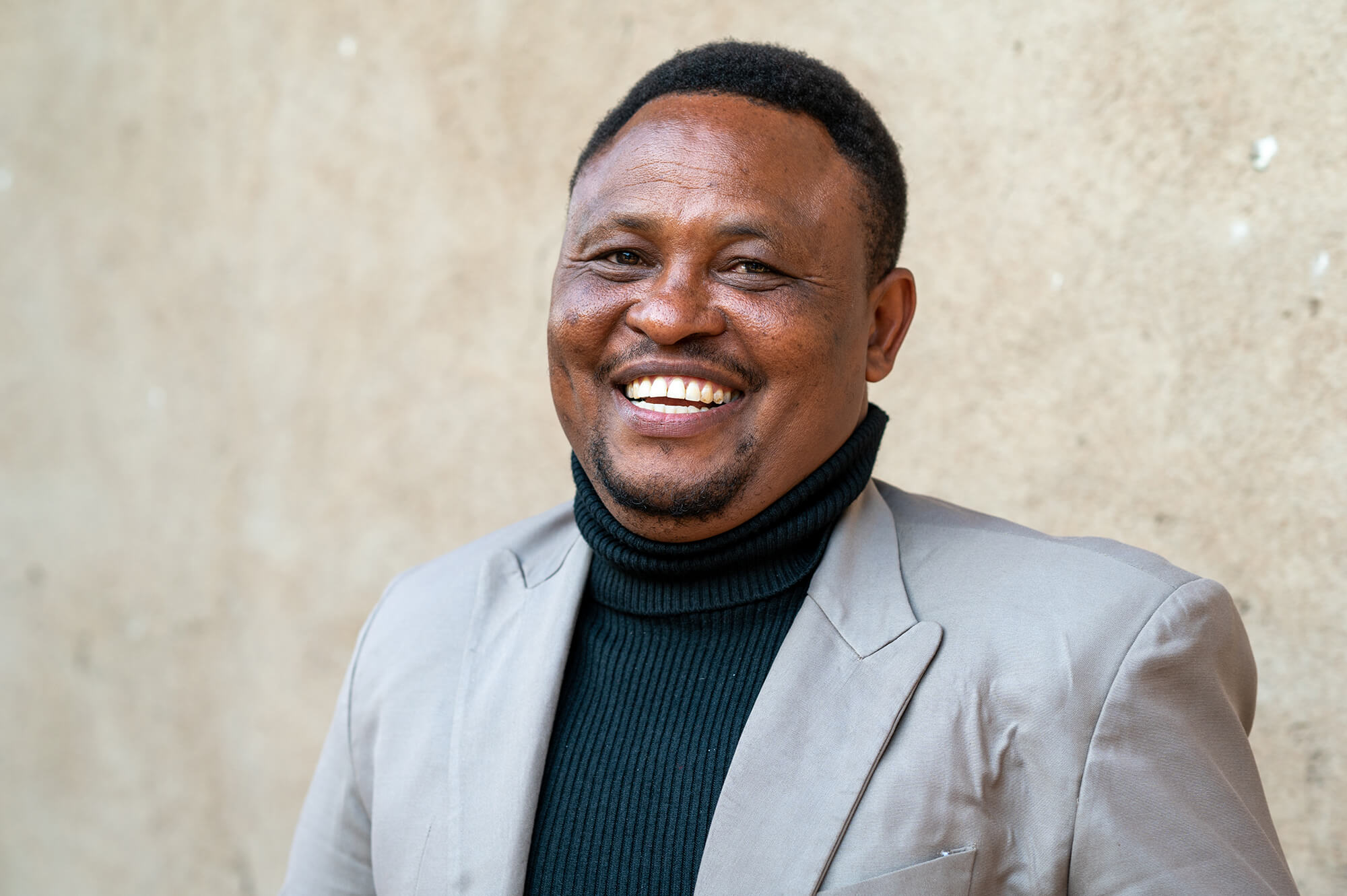
Bicycle
When we left Shinyanga that early Saturday morning in July, the city was waking up. There was quite a bit of motorized traffic, but the more we left the center, the fewer cars we saw. Soon, we drove through farming fields, where donkey carts and ox-wagons were the most conspicuous vehicles. However, most people traveled either on foot or riding a bicycle.
Under-Developed
Tanzania is easily one of the poorest countries I’ve visited so far. Despite the vast availability of potential farmland, there are no large farms because there’s no money to invest in developing larger-scale agriculture. “Because of political issues, the government doesn’t have plans to empower the rural people,” Nicodemus explained. “And even if they would have, there would be no capital to do so. There is no development here, and the prices for the crops are very low. The farms are not sufficient to keep society going. There’s no heavy industry, either. We import most things.”
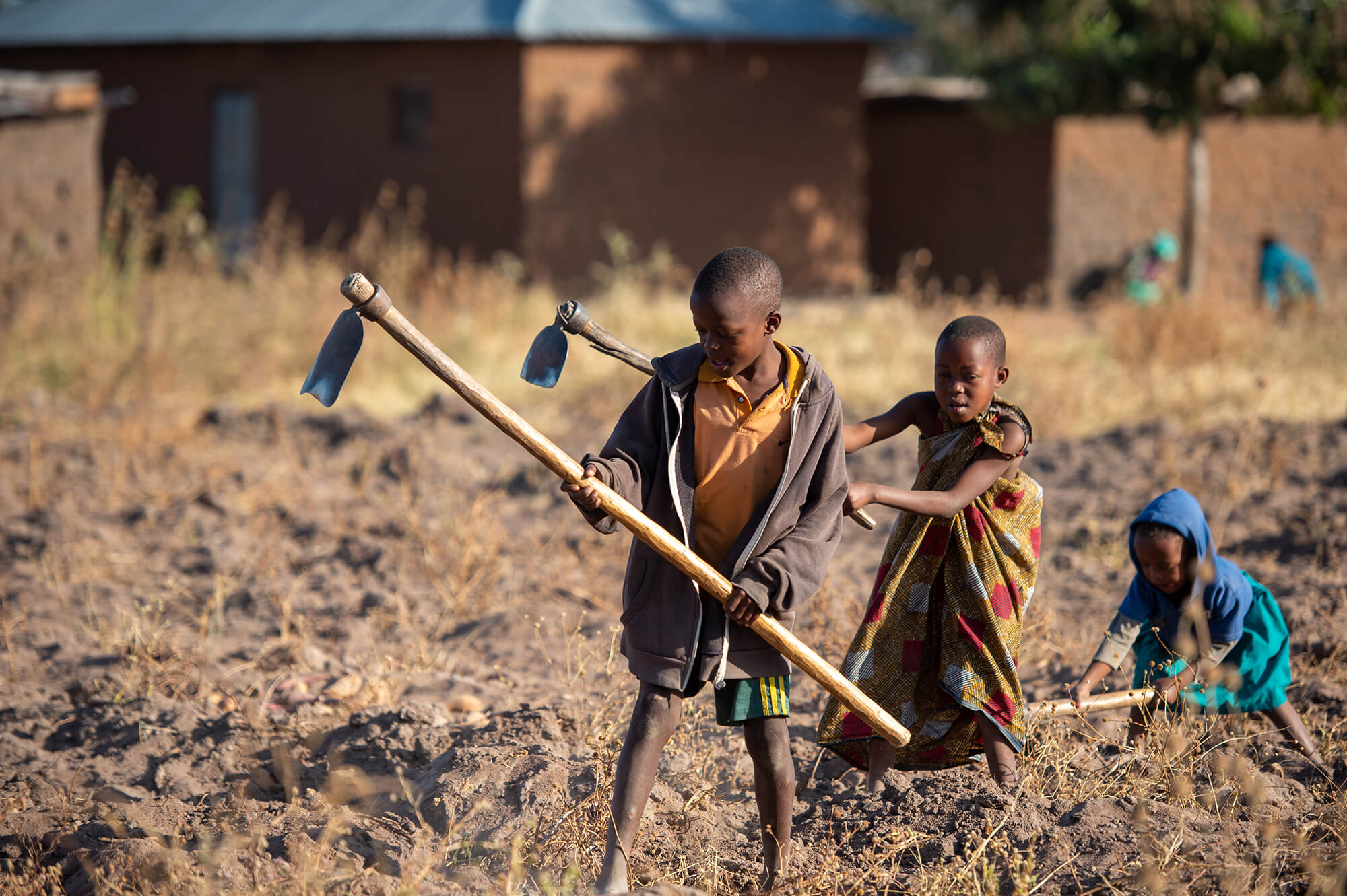
The most striking and sobering sight to me in this regard was young children herding cattle and even breaking the ground with pickaxes. I can’t imagine I would feel the pressing urge to send my kids out for such hard labor. Here, however, lots of impoverished peasants simply cannot miss the extra pair of hands.
Poverty is not restricted to the economy, though. Idolatry and witchcraft tend to be rife in an under-developed, rural environment like Tanzania’s Shinyanga Region. Due to a lack of healthcare, people quickly turn to witch doctors and their remedies. At the same time, the Gospel’s antidote to paganism is scarce because the few existing churches are heavily under-resourced.
“Wherever I go, I find Him…”
“If I go east where the sun rises or go to live in the west beyond the sea, even there you will take my hand and lead me. Your strong right hand will protect me,” says Psalm 139:9-10. It’s that notion that Mwamapalala’s new believers conveyed with their simple song. Led by the Holy Spirit, Pastor Shadrack (pictured below) taught them to trust Jesus, Who promised to be with us always—a promise no false god could ever live up to. The Project Philip Bible study program gave him the skills and experience to minister to the locals.
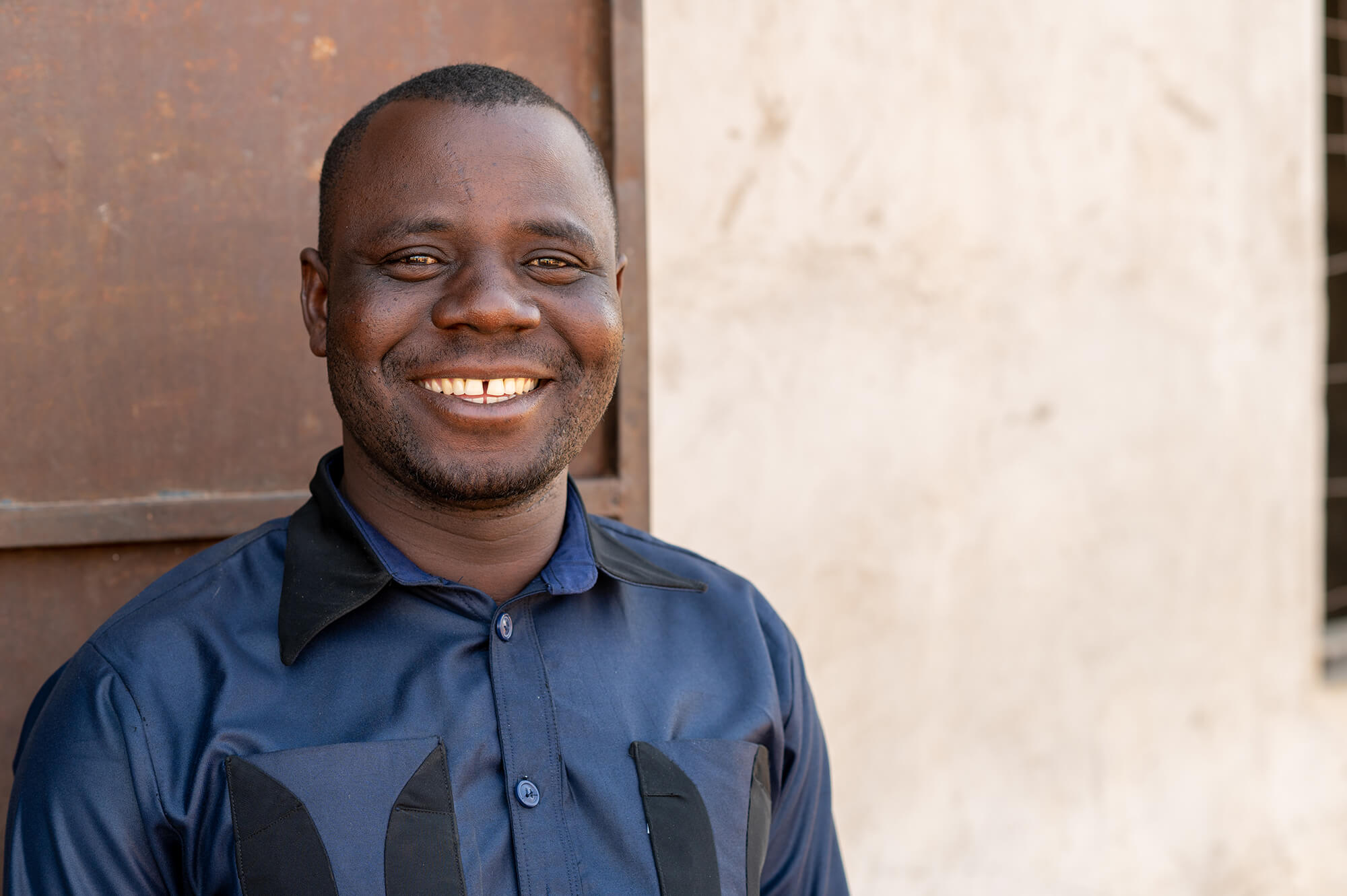
“I love the simplified language of Bible League’s Scripture materials,” Pastor Shadrack pointed out. “They are easy to read and understand, which helps me tremendously in my ministry.”
“The booklets have strengthened my knowledge of the Word of God.”
Kanisa Mlima Moria (Mount Moria Church) was the name of Pastor Shadrack’s church. The phrase “a humble abode” would be the politest way to describe it. With its rusty brown metal doors and similar iron grids over its glassless windows, the construction appeared like an abandoned workshop. There was no sign at the entrance that indicated it was a church. However, around the corner of the building, I saw the words “Karibu uabudu pamoja nasi” painted in large, regular capitals on the wall, which translates to “Welcome to worship with us.” The invitation that has attracted many already.
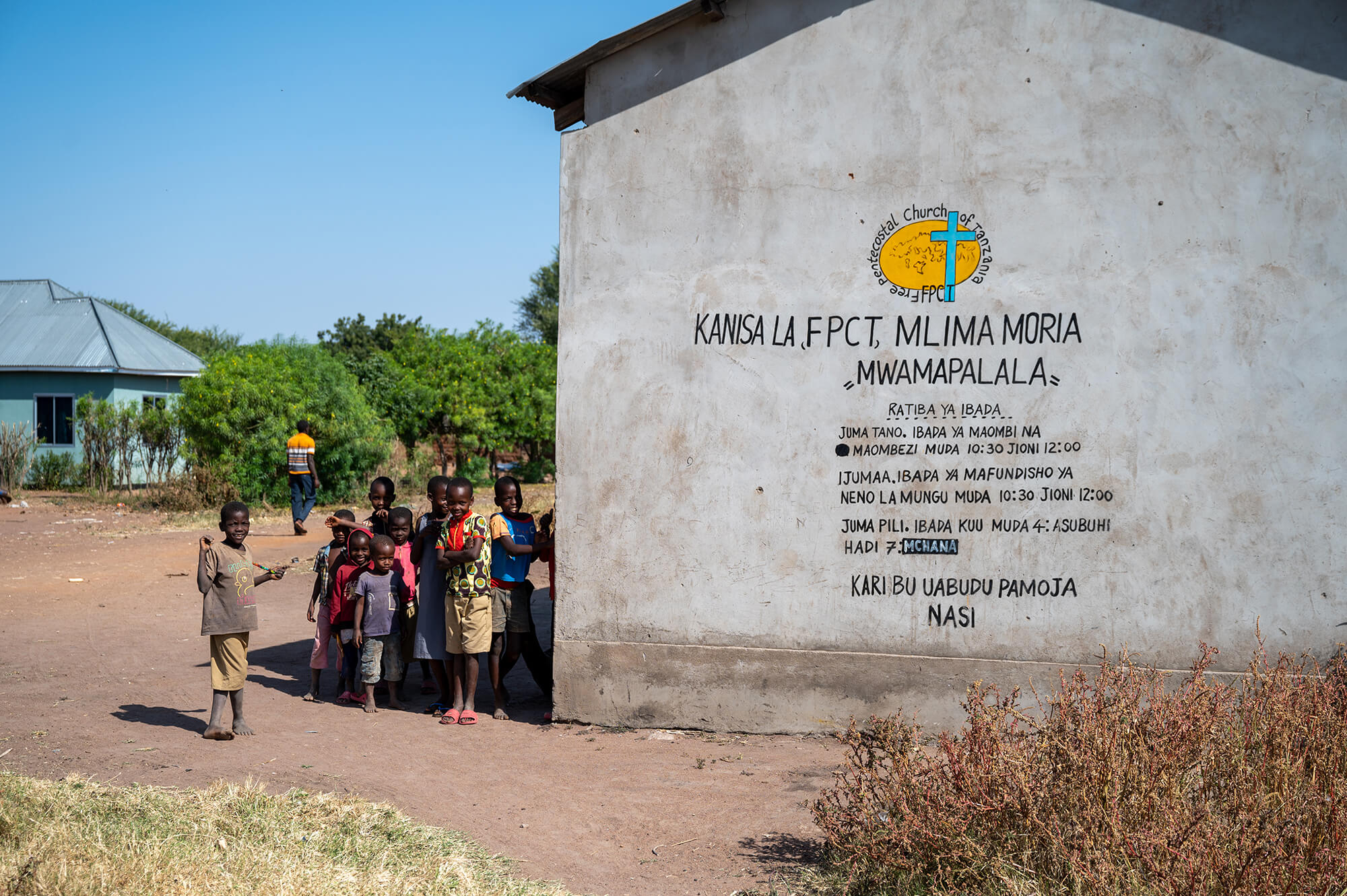
Inside, plastic chairs stood on the dusty concrete floor, which was in a poor state. Pastor Shadrack and his fledgling congregation had hung colorful curtains on the wall to make the room look at least a bit like a sanctuary. “That’s been our main challenge,” he intimated. “We have people, but we don’t have our own building. So, we rent this place, which, of course, is costly.”
“I am amazed by Jesus…”
Before Shadrack started his work among the people of Mwamapalala, he consulted the local government, asking their permission to start a church. “They told me there are about 200 households here, with up to 15 people in one house,” he said. Acknowledging that the few existing churches were far away, they granted him his request. Now, with his rapidly growing congregation, the rented building became too small. Again, the local government showed their favor for Shadrack’s ministry.
“The community leader has allowed me to obtain a piece of land to build our own church on,” he said with gratitude. “God is good! You can see the land if you like.”
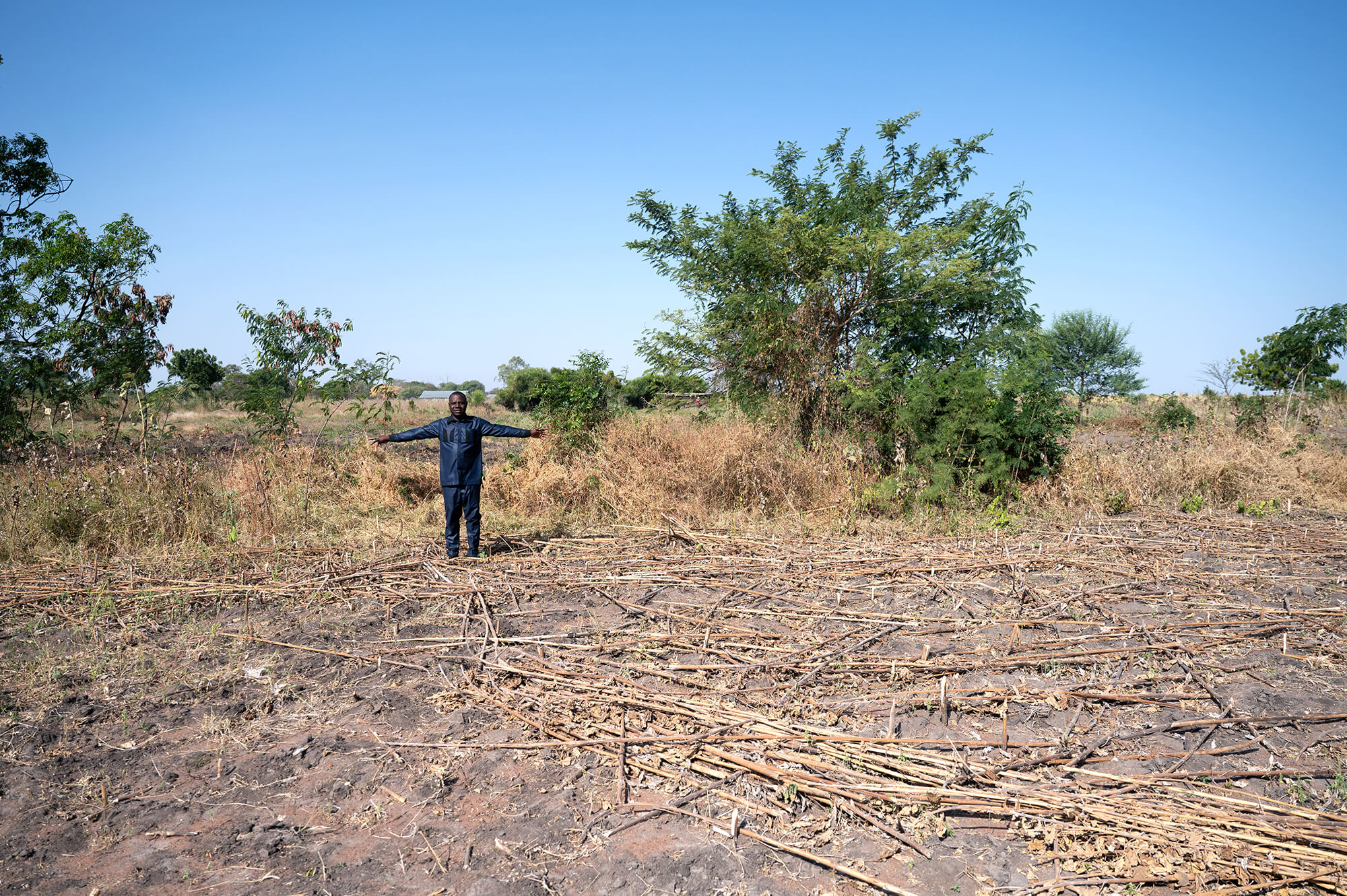
Pastor Shadrack brought me to an uncultivated stretch of bushveld on the opposite side of the road. There, behind a row of rustling trees, lay a plot about half the size of a soccer field. Shadrack spread his arms and announced, “In August, we will start constructing our permanent building. This is where we will be worshipping!”
Worshipping that “amazing Jesus,” Who has used Pastor Shadrack to find Mwamapalala’s people. Soon, they will search His intimate presence in a sanctuary of their own. And not only they! “My vision is to expand the work of God,” Pastor Shadrack stressed.
“Other villages nearby haven’t been reached with the Gospel. I want them all to know Christ.”
The pastor then expressed the need for more training and Scripture materials from Bible League International. “I’m telling the supporters, please, continue providing these for us,” he pleaded. “I’m giving thanks for what they are doing to help us in the ministry. And please, also pray for us as we start building our church.”
“Send me, Lord…”
Pastor Shadrack arrived in Mwamapalala on a motorcycle, one of the few motorized vehicles in the vast surroundings. On top of the headlight was a black shield with white letters saying, “Nitume mimi Bwana,” Swahili for “Send me, Lord.” I couldn’t sum up Shadrack’s commitment more clearly. He has ceded the handlebar of his life to the Lord. While I’m back at my desk, watching that joyful snippet that inspired me to write this story, Shadrack is riding his motorcycle across Shinyanga’s dusty roads, seeking more people to reach with the Good News. “As the Scriptures say, ‘How wonderful it is to see someone coming to tell good news!’” (Romans 10:15)
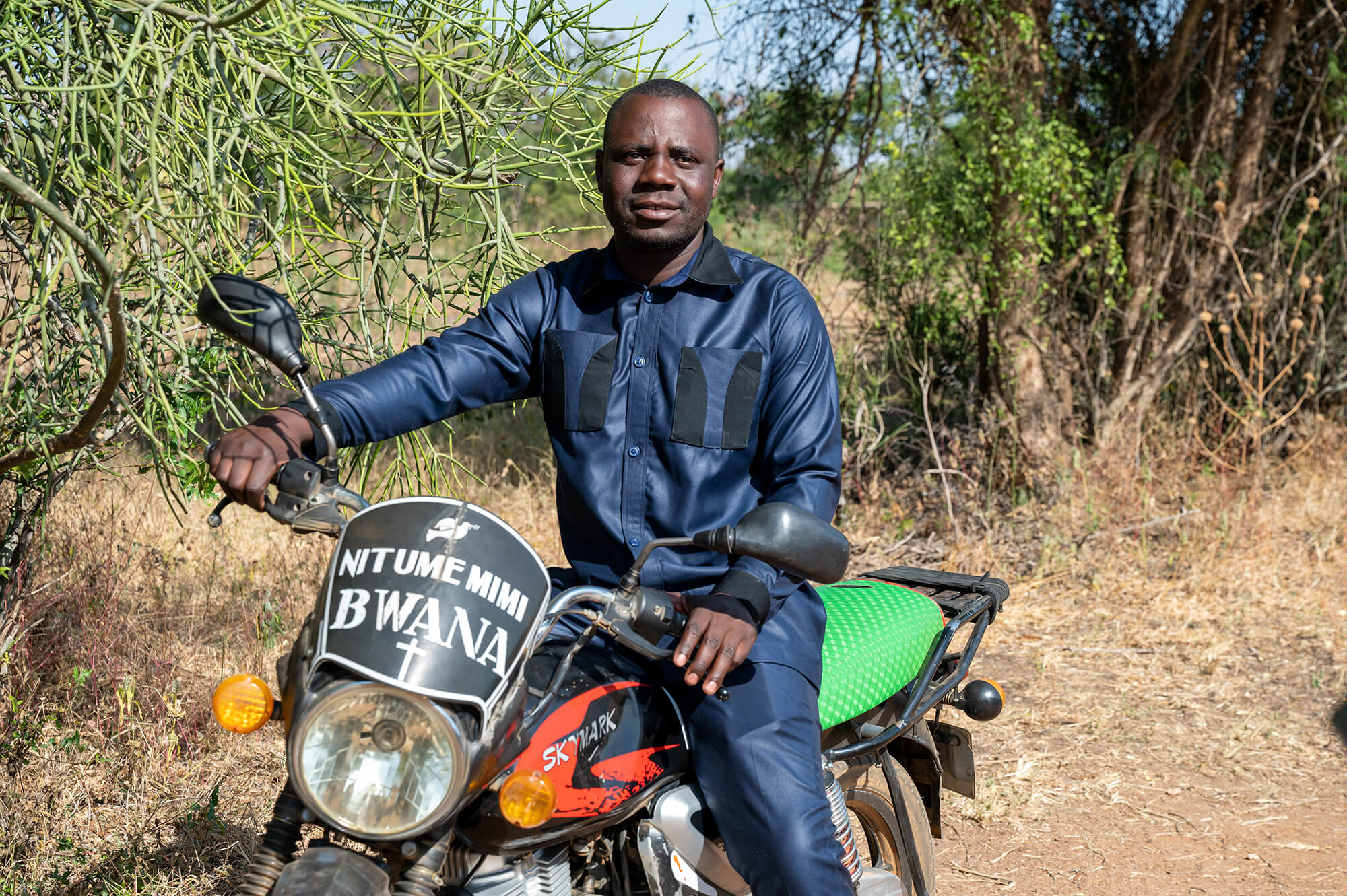
Pastor Jacob
After visiting Mwamapalala, Pastor Nicodemus brought me to Idonho, a place even smaller and less significant. A handful of simple structures on sandy, dry soil, with a thorny tree here and there—that’s all it is. But there are lost people here, people who desperately need to hear the Good News! Here, another young pastor named Jacob (pictured below with his family) followed God’s call to plant a church.
“After I completed the Project Philip training, I chose Idonho as my target area because there was no church, not a single one,” Pastor Jacob told me. “Those who live here, mostly small farmers, are idol worshippers. I felt peace in my heart in this area,” he added. “That’s why I started here.”
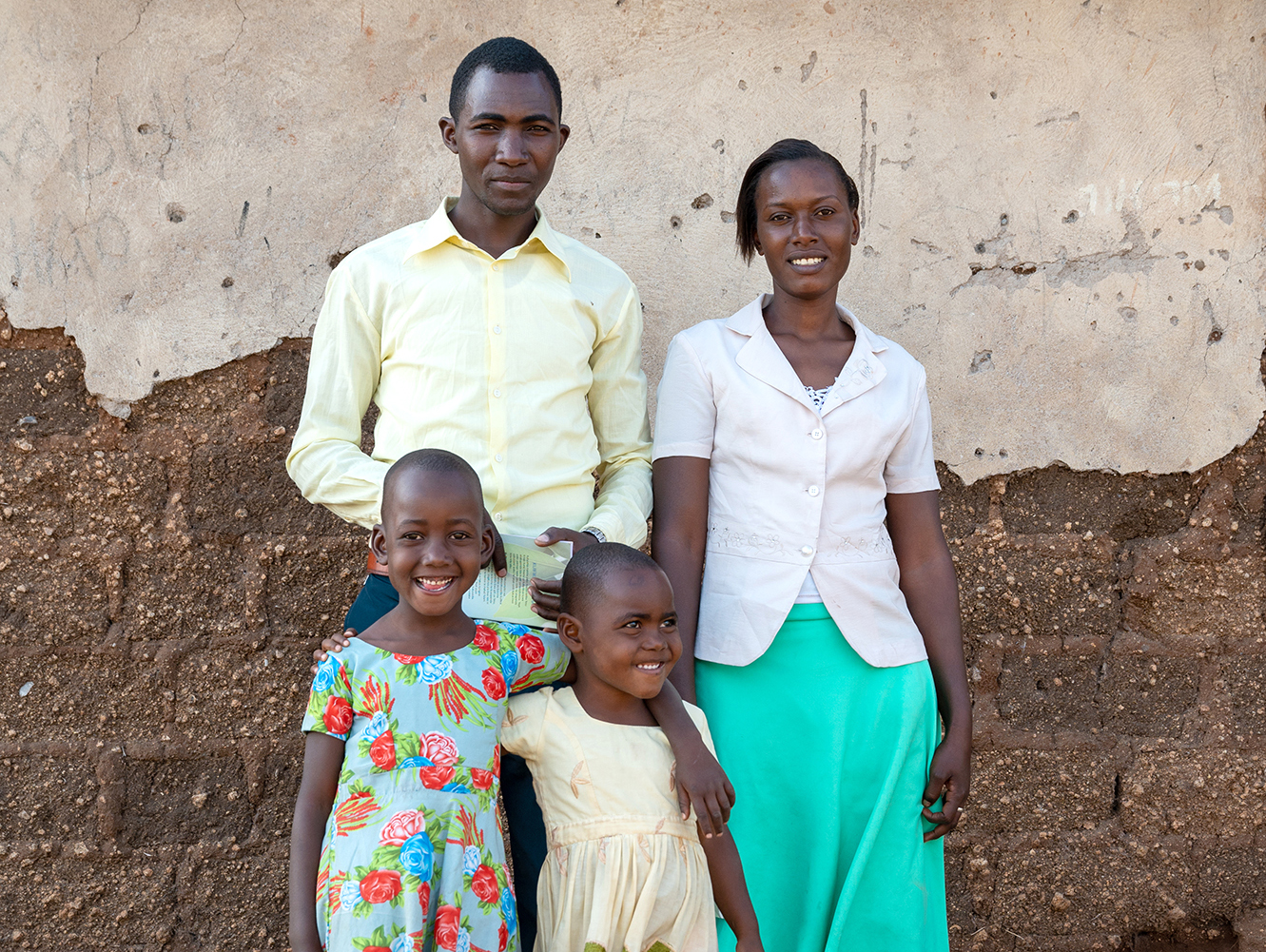
27-year-old Jacob is a man of few words. He is of average height, slender, and in his yellow shirt and blue pants, he looks sober yet neat. He started his ministry in February this year.
“My first group had five people,” he recalls. “The Bible study program attracted many others, and now, we are with 28 people in our church.”
Rapid growth
I met Pastor Jacob in his church in Idonho, a small mudbrick building with a rusty tin roof. About 25 people, young and old, gathered inside. Wondering if he could keep up with the rapid growth of his congregation, I asked Pastor Jacob if he had received training to become a church planter or pastor.
“No other training than Project Philip,” he replied.
“Would you like to have more training?” I inquired.
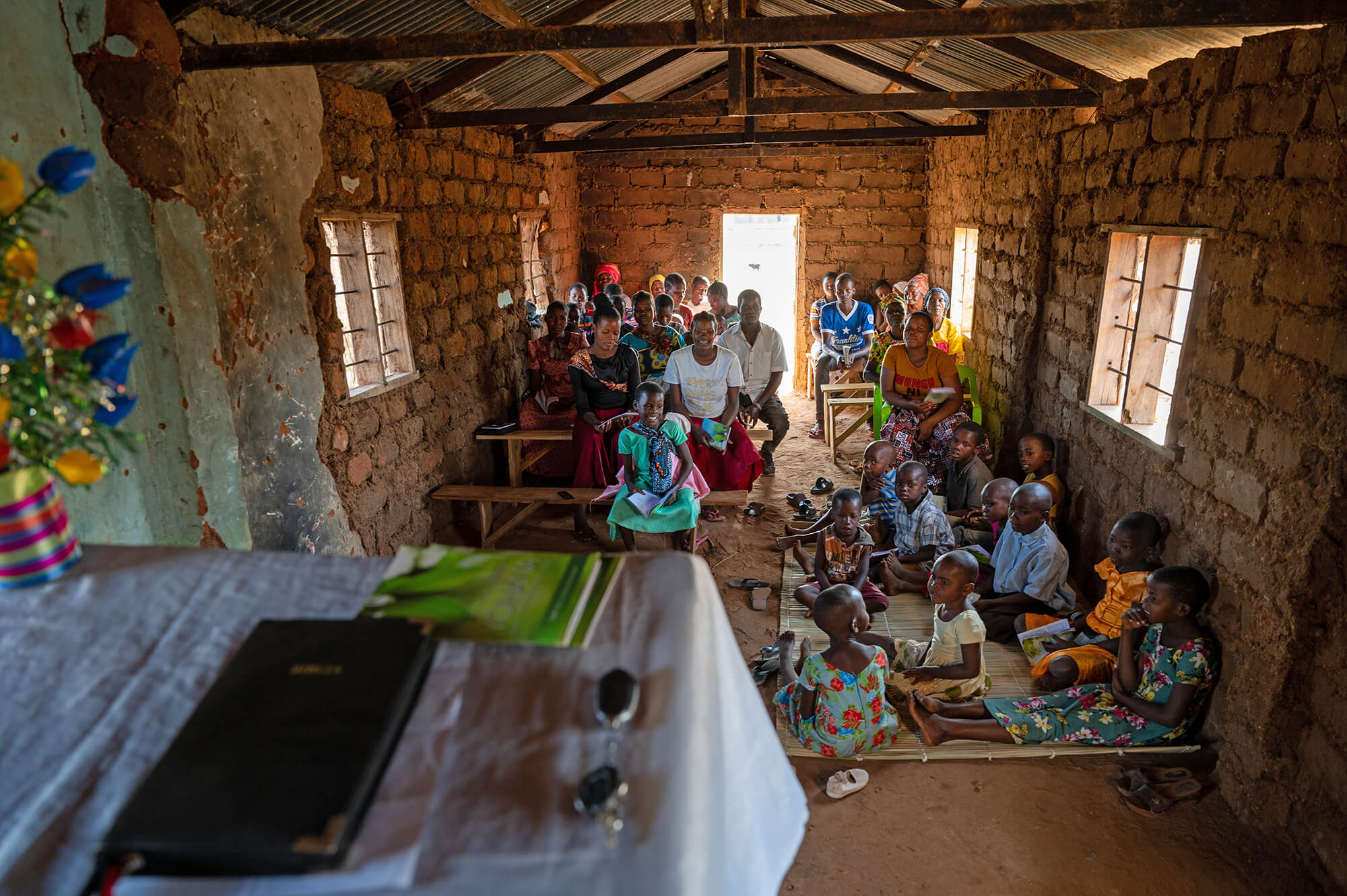
“Very much, yes!” was his passionate response. Further education would enable the young leader to oversee, manage, and nurture his congregation. “The church keeps growing,” he pointed out. “Some of my people are waiting to be baptized, while other newcomers desire to be born-again. They used to worship idols, but now, they are coming to Jesus.”
Direction
Jacob commenced his work in Idonho by simply going from house to house, encouraging the locals to join the Bible study group he had initiated.
“I found an open attitude among them,” he said. “As soon as they joined the Bible study, they started coming to church, too. I didn’t even have to urge them.”
“The Scripture resources of Bible League International have been beneficial,” he continued. “They are giving me direction, and because the language is simplified, the people understand them very well. The best thing about those booklets is that they help people transform their lives from idolatry to serving Christ.”
Although Idonho might seem nondescript, Pastor Jacob saw much potential. “My target for the coming years is to reach 700 people with the Gospel,” he said without batting an eyelid. “I’ll need a lot of trained workers, but Project Philip will help me.”
Much to desire
At the time of my visit, the budding church rented the tiny place of worship where we met. “This building doesn’t belong to us, so we are paying monthly,” Pastor Jacob related. “Recently, however, we have bought a plot nearby, within walking distance, where we can build our own church.”
Little education, no children’s materials, ambitious expansion plans, and a still-to-build sanctuary; there is much left to desire for Pastor Jacob. What would he like to tell the supporters of Bible League International?
“I would thank them heartily,” he said in his unassuming manner, “but I’d also ask them to continue their support so we can reach more people.”
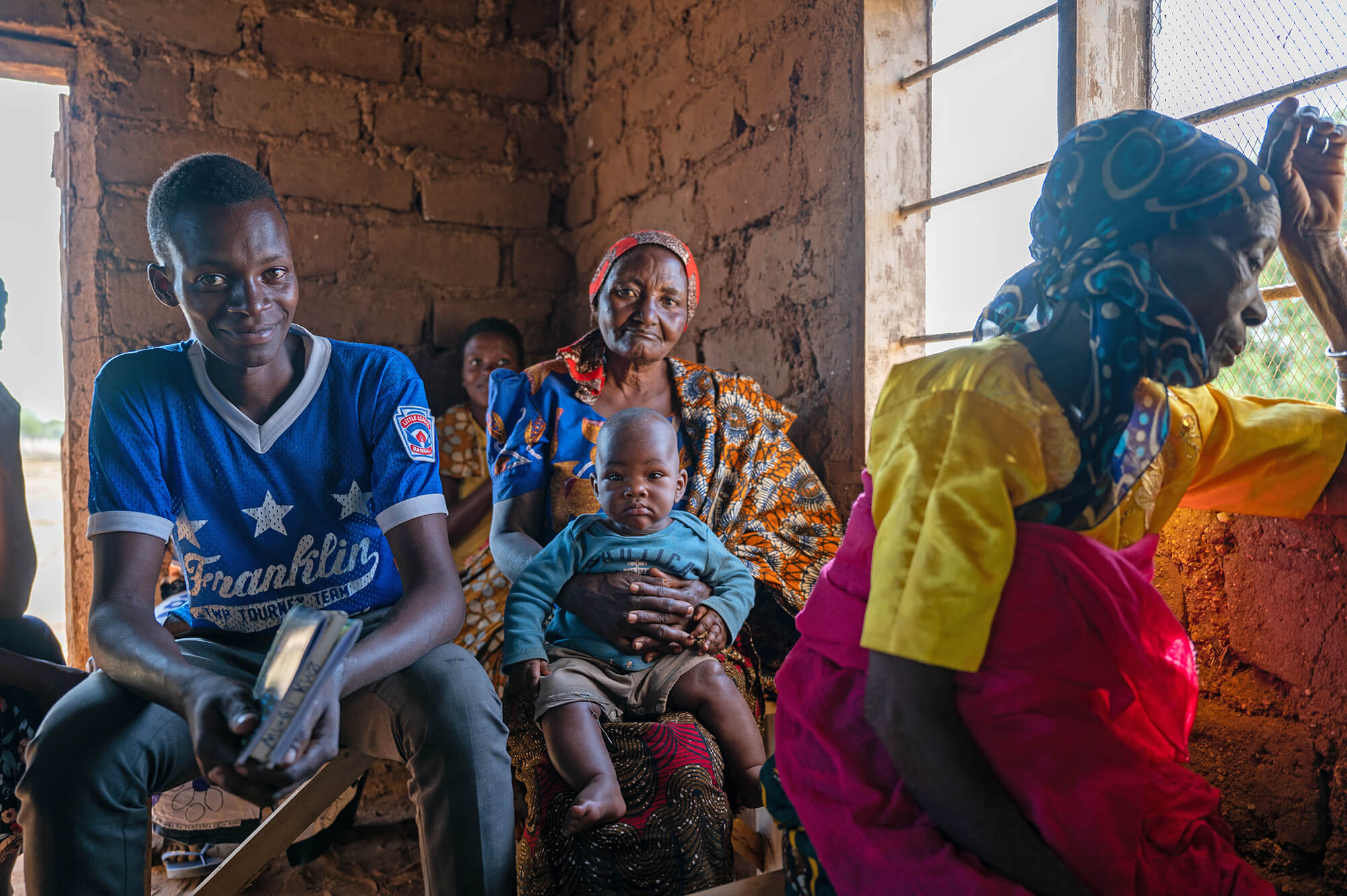
Tremendous encouragement
Driving back to Shinyanga, I contemplated the meetings I had that day. The similar needs of Pastors Shadrack and Jacob weighed on my heart—so much ground to break in the Lord’s vineyard here with such limited tools. At the same time, I rejoiced about the openness to God’s Word I had so clearly sensed. The impact of the Project Philip Bible study program is enormous in rural Shinyanga.
Pastor Nicodemus, our ministry leader, pointed out that I might be among the few white people the locals will see in their lives. They’d never imagined people all the way from Europe would make an effort to come to Shinyanga to spend time with them. Likewise, the ongoing involvement of Bible League International’s supporters is a tremendous encouragement to Shinyanga’s fledgling churches. Pondering all that, the words from that simple song resounded in my heart,
Wherever I go, I find Him!”
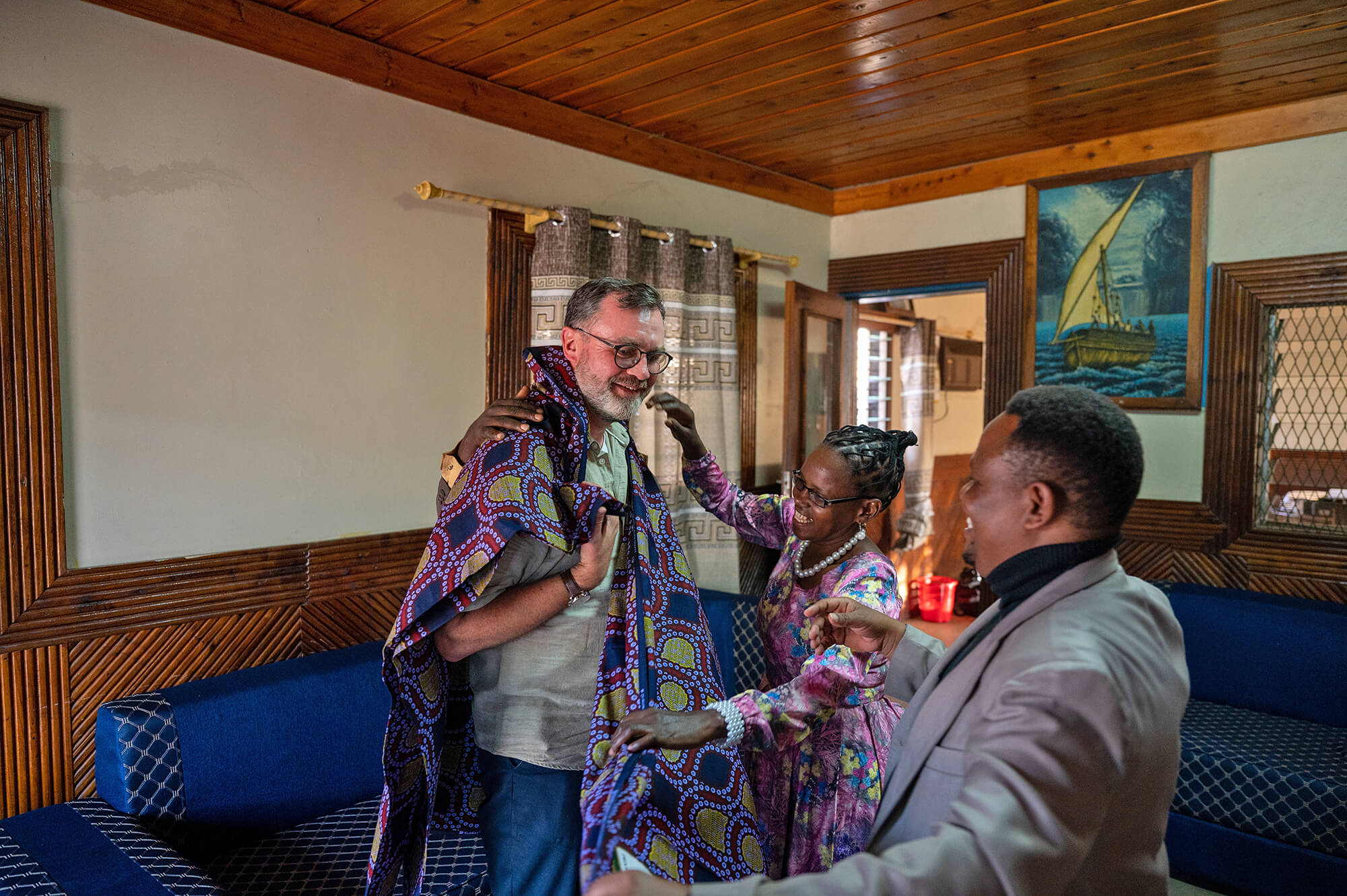
Anton de Vreugd is a Communication Specialist located in The Netherlands. He has been with Bible League International for more than 20 years and has traveled extensively, witnessing firsthand the way God uses your gifts around the globe.




